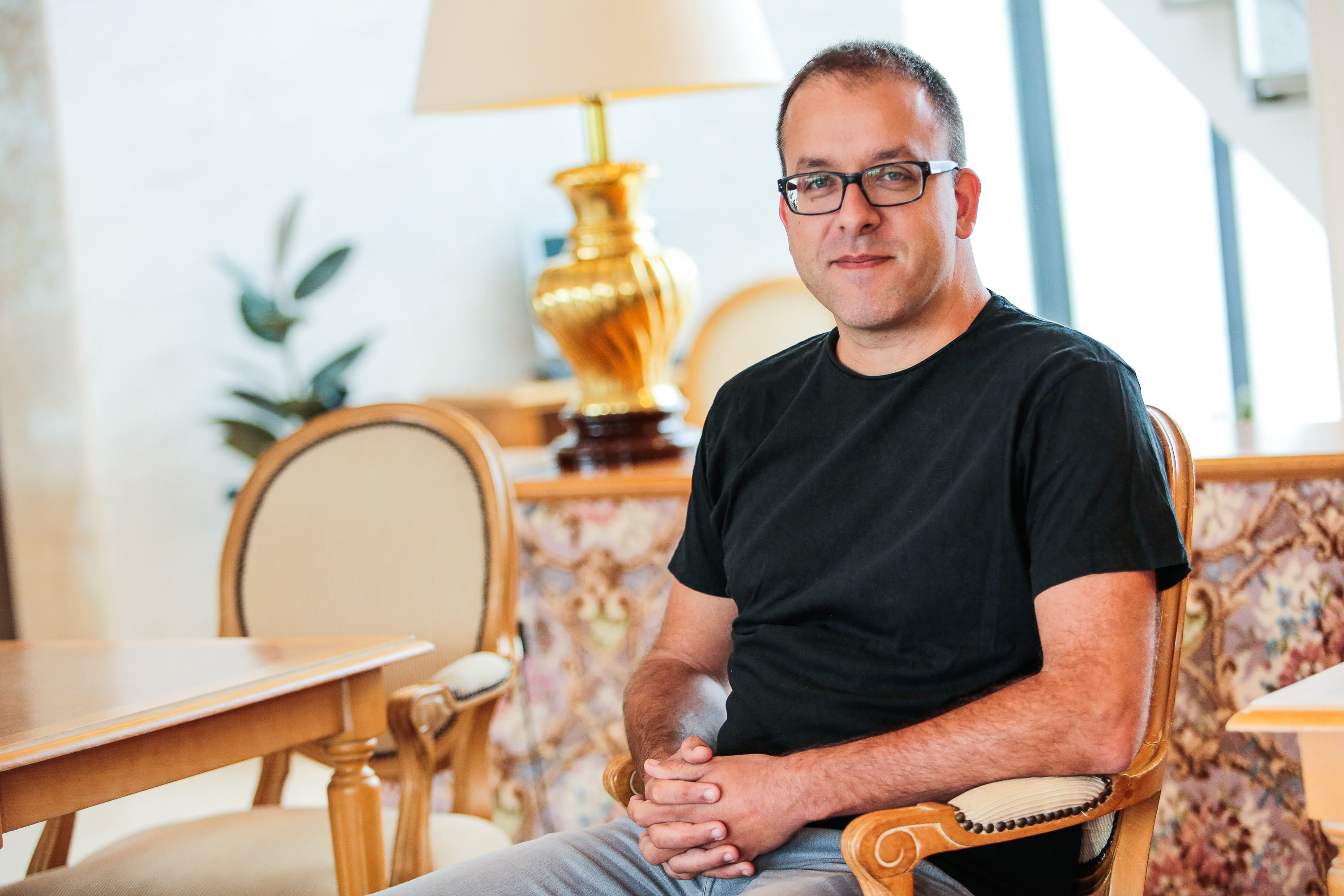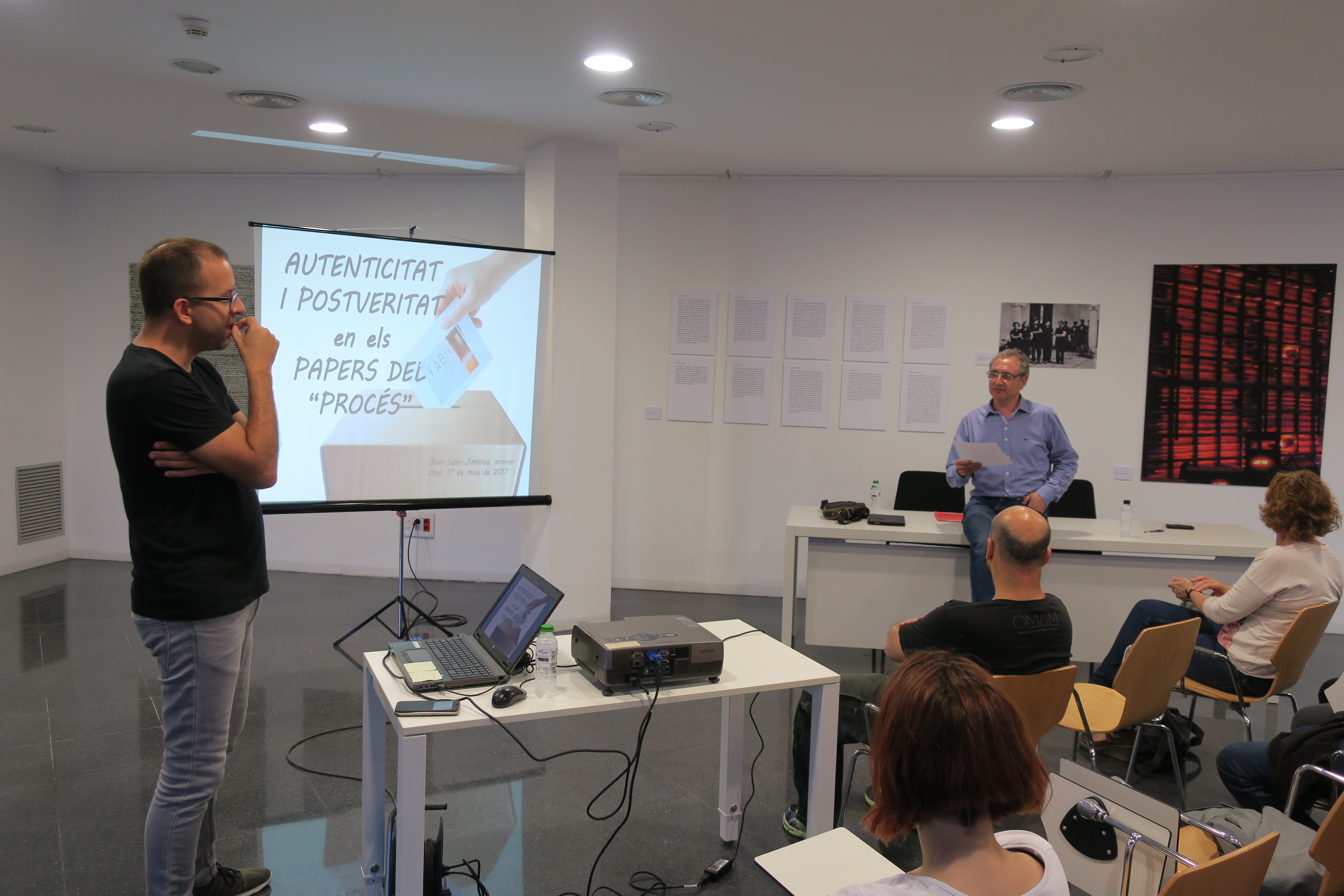Collective residencies / NEW JOURNALISM / Olot
JOAN SOLER
From Monday, 15 May 2017 to Sunday, 21 May 2017

Bio
Director of the Historical Archive of Terrassa, professor of Diplomatics at the School of Archival and Records Management of UAB (Barcelona) and president of the Catalan Archivists and Records Managers Society. Since 2004 carries on investigating new uses of Diplomatics, understood as the science that studies the authenticity of documentary records made in any historical epoch, also the present. He has worked with medieval, modern and contemporary documentation, being particularly prolific in the study of documentary authenticity of digital records. If a document is authentic is vital for it to be a real source of guarantee. Its management and protection are basical for a more transparent organizations, to promote access to quality information and to provide critical knowledge and tools for accountability.
Project
There are two areas I want to work during my stay at Faber. The evaluation of the quality and authenticity of documents used to justify certain news media and to demonstrate its veracity. Secondly, the improvement of the most appropriate working methods to ensure that electronic records have the appropriate metadata to preserve their long-term essential properties, i.e, reliability, authenticity, integrity, identity, accessibility and usability. A validated method will provide quality and guarantee to the information that circulate by the digital press channels. At the same time, the public will have a tool to enrich arguments of critical analysis of information and will develop criteria to discern genuine news from fake news.
A Draft is a Draft
That means that if it is only a draft, it is an incomplete document, an unfinished piece of work still subject to variation and possible new versions, without being a final document. And if it is not final, it is not an original document, and as such it cannot be primary, complete and effective legally. That is what diplomatics say, which deals with the study of the authenticity and falsification of documents of a legal nature in all their different states of transmission.
The first conclusion is that the draft published by El País, by its very nature, cannot have any kind of legal effect, meaning that it cannot be used in favour of or in opposition to anything. It certainly cannot be used to take legal action. Formally, it lacks all kinds of guarantees. It is not validated, so it is not finalised and no responsibilities can be attributed to the people who should have validated it. It provides no information proving its origin, as the newspaper has silenced them. The metadata in the pdf posted by El País only indicate that it was extracted from a system at 6.29 pm on 20 May, that it was created as a pdf at 8.29.06 pm that same day and that it was modified at 11.00.17 pm on 21 May. It was later published on 22 May. These metadata prevent us from knowing the origin, the provenance, and therefore the legitimacy of the source. These metadata also indicate possible changes during the drafting of the document to be linked to the news item. In other words, this document would never have passed any fact-checking department at a certain category of newspaper. As such, any newspaper that publishes the draft delegitimises the authenticity of the document right away because it is unable (or unwilling, shielding itself with the journalistic principle to protect original sources) to endow it with certainty and to inform us about its origin. This would have loaded the document with the power of evidence, bestowing it with legitimacy. Instead, it goes in exactly the opposite direction.
All this does not mean that what the document says is false. We say that a document that is not legitimate cannot be used as evidence, and in fact legally it cannot be. But in no case can the veracity of the information that it conveys be denied. This is one of the paradoxes of diplomatics. We have the famous case of the draft of the UDEF that the newspaper El Mundo used in November 2012 to corrupt the electoral process in the Parliament of Catalonia on 25 November. At that time, it created the same tumult as now. The document was also a draft, unregistered, which the newspaper interpreted in a very biased way and presented incompletely. Many things were said about a certain Pujol family, which later… well, we all know what happened later. In any case, that draft surely ended up causing many people to change their vote at the last minute, and the election results turned out differently than they would have otherwise.
The effects produced by these actions are clearly political and aimed at guiding public opinion to specific places. This is a draft that ultimately determines political statements, guiding the positioning of parties, lighting public opinion on fire, blowing up Twitter and causing anxiety once again. What we are really experiencing is a complete and total loss of trust in how the news media are presenting their sources. In the post-truth age and the era of fake news, this biased way of working with documents that would not hold up in court should also be criticised and rejected. It is also a way to fill public opinion with fantasies and avoid getting to the bottom of the problem. That is also something that we the people have to know and become aware of. This is why arguments for solid criteria to discredit certain sources and to set limits on escalations of this kind are missing in much of the news media. Diplomatics is a field of study that is rather accessible to the common man to determine what is authentic, and then to get an accurate idea of what may be true or not. I would incorporate this quickly into the fact-checking department of every newspaper. That is, if there are still any newspapers and fact-checking departments around.

